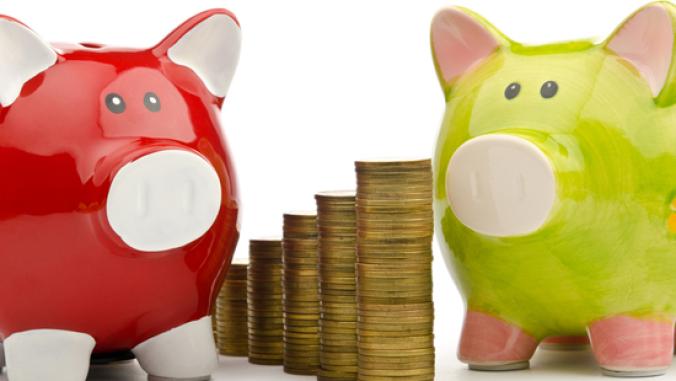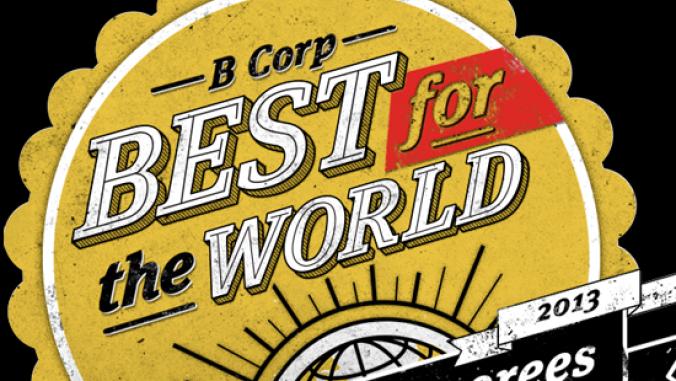The Bottled Water Business Takes Another Licking
<p>In another sign that the worm has turned on the bottled water industry, Mother Jones magazine has an in-depth look at the impacts of FIJI Water on the planet and the island nation itself.</p>

Bottled water has had a tough run of it lately; for a while, bottled water became the public face of waste. Expensive, resource-intensive and an unnecessary alternative to municipal water supplies (which, the government noted, were more heavily regulated than bottled water), bottled water became the bogeyman.
And almost no brand has taken more heat than FIJI Water. Because it is shipped thousands of miles from the island nation (5,000-plus miles from Fiji to San Francisco, more than 10,000 from Fiji to London), in the heftiest plastic bottle of many major brands, FIJI water has gotten a bad reputation, and not even its nearly 2-year-old plan to be carbon negative has helped.
The latest news, in the form of an in-depth investigative piece in Mother Jones, not only looks at how FIJI the company (it has copyrighted the all-caps spelling of Fiji) affects the people and environment of Fiji the nation, but also highlights its relationship with the country's military junta.
From the article, "Fiji Water: Spin the Bottle" by Anna Lenzer:
The Internet Café in the Fijian capital, Suva, was usually open all night long. Dimly lit, with rows of sleek, modern terminals, the place was packed at all hours with teenage boys playing boisterous rounds of video games. But one day soon after I arrived, the staff told me they now had to shut down by 5 p.m. Police orders, they shrugged: The country's military junta had declared martial law a few days before, and things were a bit tense.
I sat down and sent out a few emails -- filling friends in on my visit to the Fiji Water bottling plant, forwarding a story about foreign journalists being kicked off the island. Then my connection died. "It will just be a few minutes," one of the clerks said.
Moments later, a pair of police officers walked in. They headed for a woman at another terminal; I turned to my screen to compose a note about how cops were even showing up in the Internet cafés. Then I saw them coming toward me. "We're going to take you in for questioning about the emails you've been writing," they said.
What followed, in a windowless room at the main police station, felt like a bad cop movie. "Who are you really?" the bespectacled inspector wearing a khaki uniform and a smug grin asked me over and over, as if my passport, press credentials, and stacks of notes about Fiji Water weren't sufficient clues to my identity. [...] Eventually, it dawned on me that his concern wasn't just with my potentially seditious emails; he was worried that my reporting would taint the Fiji Water brand. "Who do you work for, another water company? It would be good to come here and try to take away Fiji Water's business, wouldn't it?"
As if that's not a sufficiently unsettling anecdote, Lenzer also looks at the impacts of FIJI's production on the islanders themselves. From the article:
Fiji Water may be well advised to spread a bit of its wealth around locally. During the 2000 coup, a small posse of villagers wielding spearguns and dynamite seized on the chaos to take over the bottling plant and threaten to burn it down. "The land is sacred and central to our continued existence and identity," a village spokesman told the Fiji Times, adding that "no Fijian should live off the breadcrumbs of past colonial injustices." Two years later, the company created the Vatukaloko Trust Fund, a charity targeting several villages surrounding its plant. It won't say how much it has given to the trust, but court proceedings indicate that it has agreed to donate .15 percent of its Fijian operation's net revenues; a company official testified that the total was about $100,000 in 2007. (For perspective, the trade journal Brandweek put Fiji Water's marketing budget at $10 million in 2008; it recently dropped $250,000 to become a founding partner of the new Salt Lake City soccer stadium.)
Read the rest of the article for much more, including the somewhat surprising background of the founder of FIJI Water.
While there's no question that FIJI is a hugely successful brand, and I have no reason to doubt its intentions around trying to offset its impacts on the global climate, it seems to me like the takeaway for non-FIJI Water businesses is that, especially if you're working with a scarce resource that's regularly called "the new carbon," you should make sure you're taking care of your own backyard as well as the larger environment.
Photo CC-licensed by Flickr user psyberartist.





